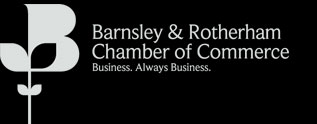
After a difficult few years, the Chancellor’s 2021 Autumn budget was a lot more optimistic than many expected. Rishi Sunak delivered his first budget weeks after taking office following the resignation of his predecessor, Sajid Javid. Rishi has spent much of the subsequent time as, by far, the government’s most popular member. This popularity, however, was driven by the giveaways necessitated by the coronavirus pandemic, and most commentators expected that the sheen would wear off when times got hard.
Instead, the Chancellor delivered a surprisingly confident set of forecasts and some good news for businesses in the 2021 Autumn budget. He anticipates that the UK economy would return to pre-Covid levels by 2022. Also that annual growth for 2021 and 2022 would be around 6.5% and 6% respectively. Healthy rates of growth, although they should be considered in the context of an economy that shrunk significantly during the pandemic.
He also expects to see government borrowing fall by half over the next year. Then by half again over the following four years. And for unemployment to peak at around 5.2%, far below the previous prediction of 11.9%.
He also made some positive announcements for businesses. One of the headlines was the significant business rate discounts on offer to the hospitality, leisure, and retail sectors. These businesses can expect a 50% discount on their business rates bill, up to a maximum of £110,000, in 2022-23. Business rates have long been criticised by small business and are a major factor in high street closures.
Other businesses will be celebrating the cancellations of the rise in fuel duty. Fuel prices have increased enormously recently and are now at their highest in nearly a decade. The cancellation of the duty rise will offer some relief to those businesses that rely on transport for their trade. However, the move has attracted some criticism from the environmental lobby. They felt money would have been better spent incentivising greener vehicles.
He also announced that the Recovery Loan Scheme will be extended for a further six months. While this did not offer businesses cheaper credit, by guaranteeing the loans, it made it more likely that businesses could secure credit to expand, or just get through a tough time. Over five thousand businesses have used the scheme. It’s clearly seen as a useful way to support the economy without huge cost to the Treasury.
Some other news might have a mixed reception, though. The National Living Wage saw a hefty increase. While this will obviously help people on low incomes, especially when in-work benefits have been cut, it means that businesses will have to fund these wage increases. And for some businesses trying to make ends meet, it might prove too much.
And, finally, he also confirmed that VAT would be returning to 20%. The cut, introduced as a pandemic response, and was used in a variety of ways by businesses in the hospitality sector to cover their costs or encourage trade. The success of the move had resulted in a campaign to make the change permanent. However, the Chancellor stuck to plans to return to pre-pandemic levels in 2022.
The Chancellor is trying to return the economy to normal times, avoiding harmful shocks as he does, but only time will tell if he has been successful.
Next steps for finding out about the 2021 Autumn Budget
Call us on 0114 345 0960 or email info@millhouses-accountancy.co.uk for queries.
Read more on our Blog.






